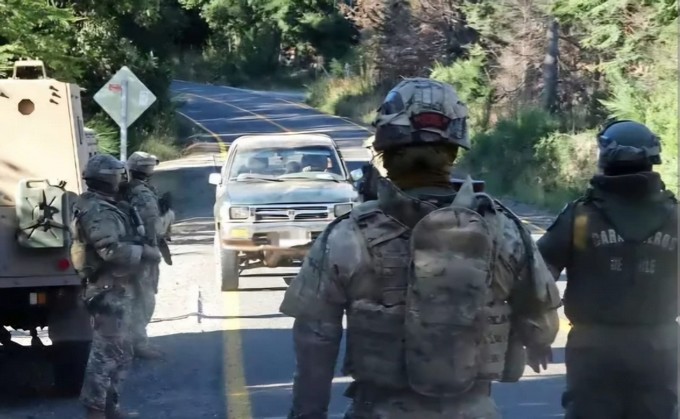Measure has been in place for two and a half years.
Over the weekend, 30 months passed since the state of exception decreed by President Gabriel Boric in May 2022 began. For Senator Carmen Gloria Aravena (Rep) of La Araucanía, this occurred when the Executive "decided it was impossible to continue denying what is happening in the southern macrozone."
Although over the past two and a half years the measure has significantly reduced rural violence, the congresswoman states that "we still witness attacks on workers in broad daylight, as well as the burning of machinery and homes of innocent families." For this reason, she calls for accelerating the discussion on the security agenda, "to put an end to a measure that was meant to be exceptional but which reality has shown cannot be de-escalated."
Deputy Miguel Mellado (RN) claims that the Government "will not end the state of exception" because the measure "has been a scarecrow that has helped reduce attacks," but it will not eliminate radicalized groups, which "now attack without territorial claims, but to reaffirm that the state of exception cannot end."
Similarly, for Deputy Miguel Becker (RN), the extension of the exceptional state "is proof that security and terrorism control remain pending tasks for this Government, as does the budget for the Army." Thus, the former mayor of Temuco urged "reconsidering investment in Defense," given the permanent deployment of troops in the southern macrozone.
Processing of Laws
The Multiguild Association of La Araucanía states that "despite 95% of President Boric's term being under a state of exception in the southern macrozone, the inhabitants of rural areas in La Araucanía and Arauco Province still cannot live in peace."
According to Patricio Santibáñez, president of the productive guilds in the area, "it is necessary for the Government to expedite the processing of laws such as the Anti-Terrorism Law, which has been stalled for over 500 days (in Congress), or the State Intelligence Law, which has been delayed for more than 2,200 days."
The United Farmers Association warns that the measure has addressed one part of the conflict but does not combat poverty in the area. The guild's president, Camilo Guzmán, argues that "economic terrorism must be tackled," which also involves "generating employment and investment to improve the economic conditions of the rural sector."
Source: subscription edition ofEl Mercurio







Comentarios (0)
No hay comentarios aún. ¡Sé el primero en comentar!
Deja un comentario